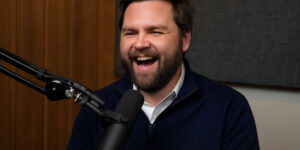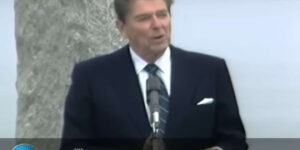A Simple Way for Believers to Crush the Power of Cancel Culture
The teachings of Jesus are filled with paradoxes, but none is more paradoxical than this: “For whoever would save his life will lose it, and whoever loses his life for My sake will find it” (Matt. 16:25). As expressed in another passage, “Truly, truly I say to you, unless a grain of wheat falls into the ground and dies, it remains alone. But if it dies, it bears much fruit. He who loves his life will lose it. And he who hates his life in this world will keep it for eternal life” (John 12:24-25). This is a cardinal, revolutionary principle, and by understanding it and implementing it, we can overcome the cancel culture.
But what, exactly, does this principle mean in our practical, day to day lives? An Australian professor, Dr. Peter Ridd, fired by his university for telling the politically incorrect truth, has coined a term that says it all. He calls it “Kamikaze Academics.”
As explained by James Delingpole, “Kamikaze Academics will comprise professors like himself willing to get themselves fired for expressing opinions which go against the standard leftist narrative—and in doing so, expose how little free speech and diversity of thought there now is in academe.”
This is the practical application of the teachings of Jesus, fleshed out here in the academic world. You speak the truth and live the truth, regardless of cost or consequences. In the process, you save your integrity even if you lose your job. As a result, you become free (in the words of Jesus, “you find your life”).
In contrast, if you try to save your job and preserve your reputation, refusing to question false narratives and choosing to compromise your convictions for the sake of your career, you actually “lose your life.” You become a slave to the system, a slave to peer pressure, a slave to the dollar, a slave to the approval of people, a slave to expediency rather than principle.
Dr. Ridd suggested that, “It’s only older academics like me who can do this. We have a duty to do this so that younger academics can have a proper academic career where they can say tough things or even stupid things and still be forgiven. You need to be able to make mistakes.”
But the call must be much broader. Both older and younger academics must speak the truth. The oppressive system must be challenged. To be silent is to enable.
More broadly still, beyond the world of academia, we must all determine to stand up and speak out and be witnesses to the truth, regardless of cost or consequence.
That doesn’t mean that we abandon practical wisdom. There is a time to speak and a time to refrain from speaking.
And that doesn’t mean we cultivate pride and arrogance, as if we couldn’t care less about what others think. To the contrary, we are called to humility, to be peacemakers rather than troublemakers.
But we must have the mentality of spiritual revolutionaries, understanding that we are here for something greater than earthly pleasures, here for a purpose that transcends the goals of ordinary life. We are here to be witnesses, to make an eternal difference, to live lives that count, both in this age and the age to come.
As a result, we are willing to sacrifice something temporal to gain something eternal. In the words of missionary martyr Jim Elliot, “He is no fool who gives what he cannot keep to gain what he cannot lose.”
Strikingly, while in college, Elliot journaled this prayer: “Father, take my life, yes, my blood if Thou wilt, and consume it with Thine enveloping fire. I would not save it, for it is not mine to save. Have it, Lord, have it all. Pour out my life as an oblation for the world. Blood is only of value as it flows before Thine altar.”
And this: “God, I pray Thee, light these idle sticks of my life and may I burn for Thee. Consume my life, my God, for it is Thine. I seek not a long life, but a full one, like you, Lord Jesus.”
Elliot, martyred by the Huaorani Indians at the age of 28 in 1956, saw his prayers answered dramatically. And while he did not live a long life, he certainly lived a full life, one that continues to speak and make an impact long after his passing, one like that of Jesus Himself.
Of course, the vast majority of us will not face the test of literal martyrdom. But there are many “deaths” we will be called to die in our daily obedience to God. That’s why I devoted an entire chapter to the theme, “To save your life is to lose it” in my forthcoming book Revolution: An Urgent Call to a Holy Uprising.
It is a fundamental, revolutionary principle set forth by Jesus, and it is something we must live out in the home, in the workplace, on the campus and online. And yet, in contrast to the original practitioners of “kamikaze,” the Japanese pilots who gave their lives to kill others, we give our lives to liberate and help others. We are here to save people’s lives, not destroy them.
The moment we take hold of this reality—that by losing our lives we find our lives—the cancel culture, along with the larger culture of peer pressure, loses it power. The moment we take hold of this, we are free.
Dr. Ridd is living this out in the world of academics, where he is in a pitched court battle with the university that dismissed him.
Let us each of live this out in our own worlds, regardless of cost or consequence. By losing our lives, we will find them. {eoa}







































